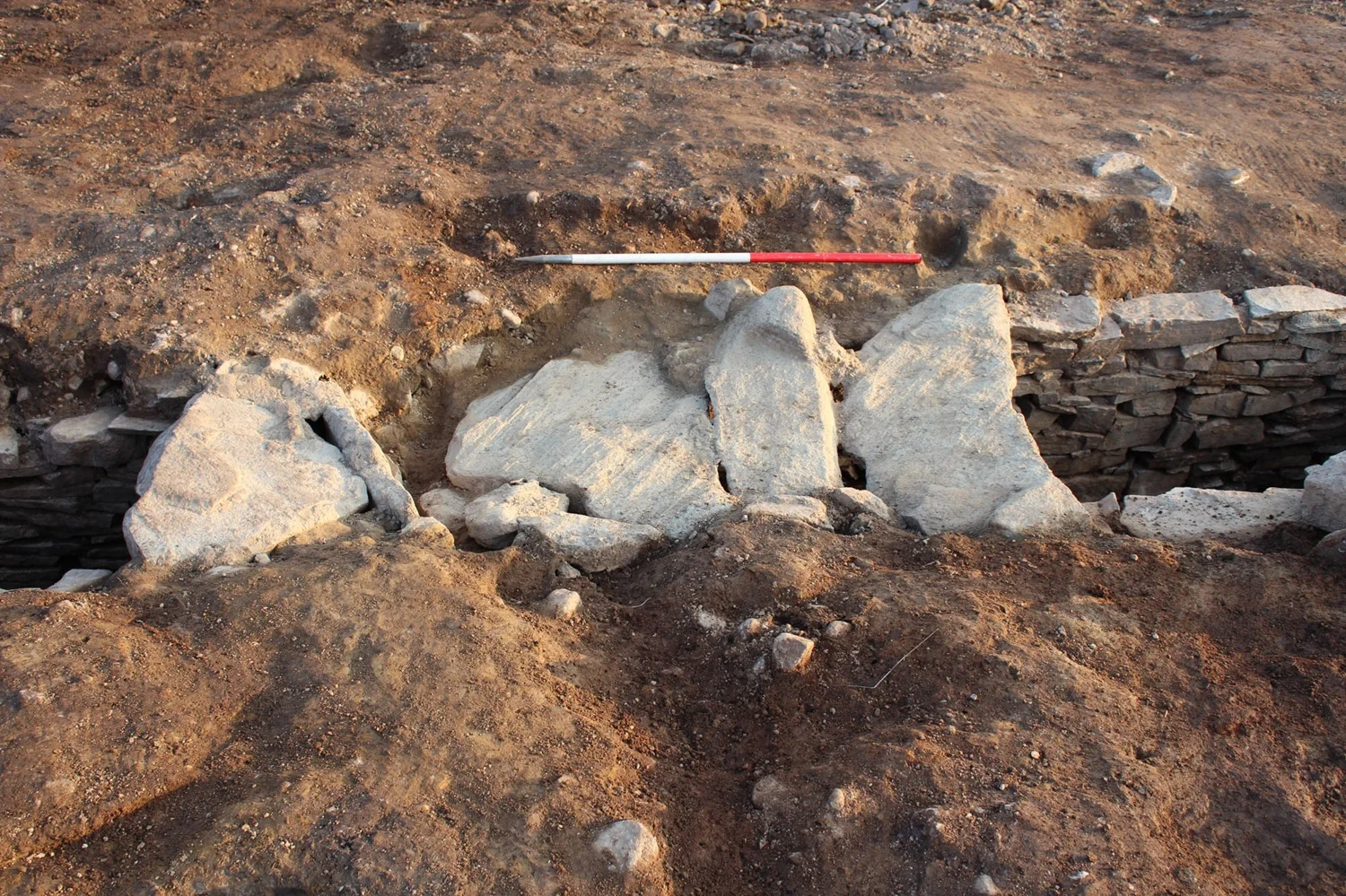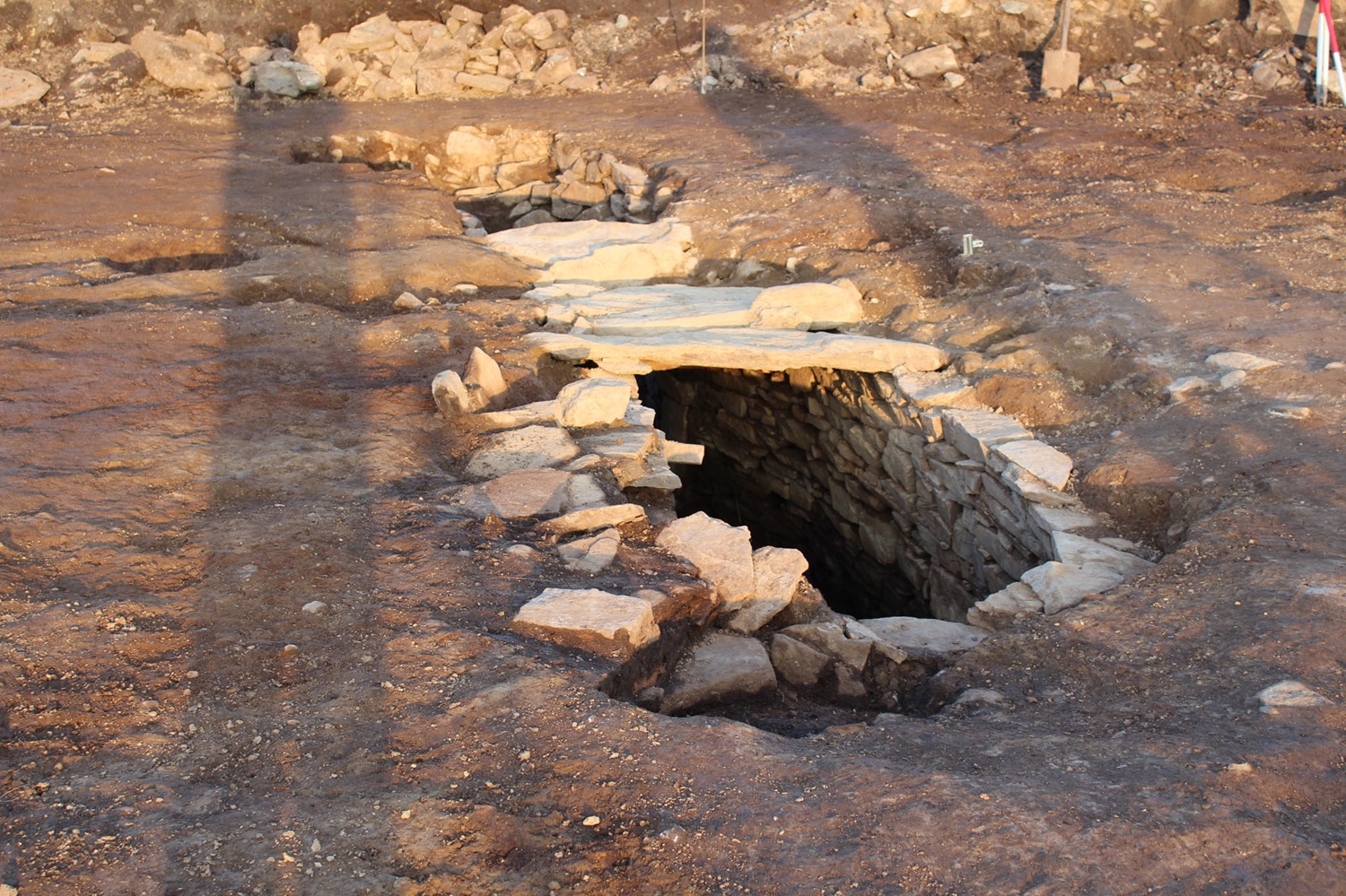A construction project in Cnoc Ard (Knockaird) on the Isle of Lewis has revealed a stone-built underground chamber, later identified by archaeologists as a Late Iron Age souterrain.
Souterrain, derived from the French word for ‘underground,’ are tunnels, galleries, or chambers excavated into the earth, then lined with stone slabs or timber before being reburied.
The lack of burials and ritual offerings suggest they were primarily used as underground cellars for storing food, such as meat products and to preserve diary.
Following the discovery in Cnoc Ard, archaeologists from AOC Archaeology were commissioned by Comhairle nan Eilean Siar (Western Isles Council) to investigate and document the site.
The study reports that the souterrain is a curving stone-built structure measuring 6.6 metres long, 1.2 metres wide, and aligned northwest by southeast.

Access is via a shallow pit, where three stone steps descend into a passage lined with corbelled sandstone and topped with stone lintels. A stone-framed doorway links the passage to the main gallery, where archaeologists uncovered a well-preserved layer of organic silt dated to between 168 BC and AD 7.
Excavations also found 264 pottery fragments representing at least 23 different vessels. The fragments have incised decorations and evidence of use over open hearths, reinforcing the theory that souterrain’s primarily served as cool storage for food.
According to AOC Archaeology, a large deposit of pottery and stone artefacts found at the base of the steps, including quern roughouts and rubbing stones, suggest a purposeful closing ritual or ceremony during the Iron Age.
In the Western Isles alone, 82 souterrains have been recorded, yet few have been studied with modern archaeological techniques, making the Knockaird find particularly significant.
Header Image Credit : AOC Archaeology
Sources : In Situ – AOC Archaeology





